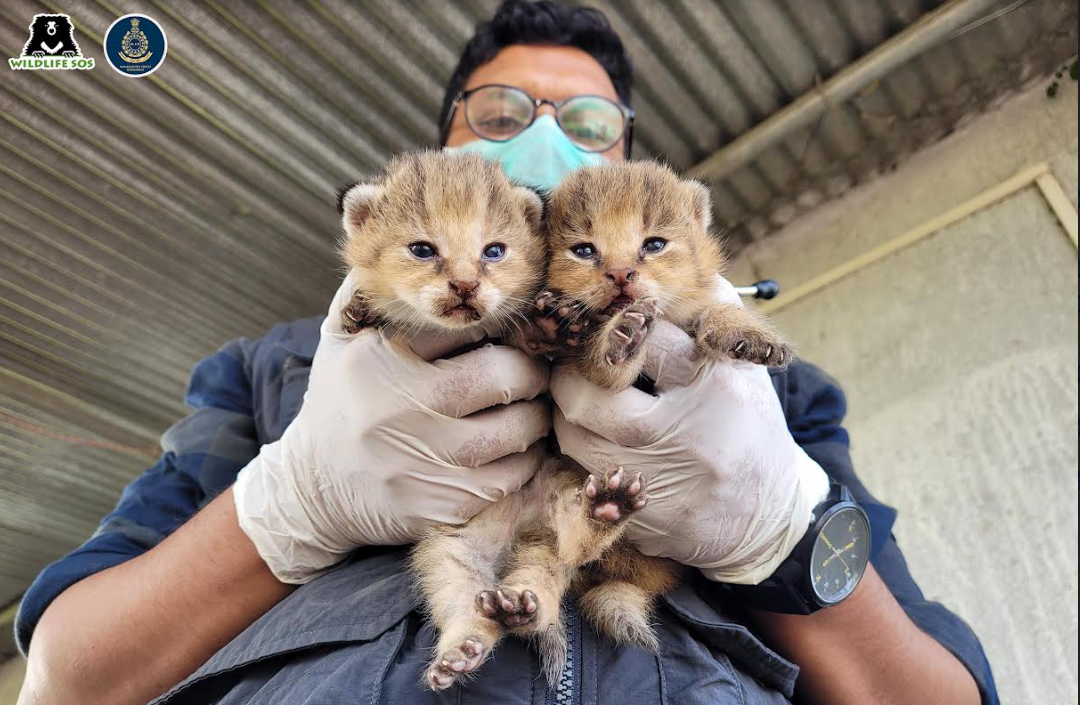Maharashtra: Vigilant Farmers Stop Harvesting Field To Rescue Baby Jungle Cats

Junnar, 26th November 2022: A pair of 20-day-old Jungle cats were found in a sugarcane field in Hivre village located in the Junnar division of Pune district in Maharashtra.
In a successful operation carried out by Wildlife SOS and the Maharashtra Forest Department, the two kittens were safely reunited with their mother.
With the advent of the sugarcane harvest season in Maharashtra, farmers have to tread cautiously because several wild cats such as leopards, jungle cats and Rusty-spotted cats seek shelter amidst the tall, dense crops. This often leaves their cubs at risk of being found by humans working in the fields.
In an all too familiar incident, sugarcane farmers in Hivre village chanced upon two baby Jungle cats on Friday. The kittens were barely 20 days old and their eyes were not fully open yet.
Concerned for the kittens’ safety, the vigilant farmers took swift action and ceased harvesting the field and carefully shifted them to a sheltered area. On being alerted, the Forest Department and a team of experts from Wildlife SOS rushed to the location.
An on-site examination by the Wildlife SOS veterinary doctor confirmed that the cubs, (identified as one male and one female) were healthy and fit to return to the wild. They were placed in a safe box and taken back to the field where the farmers found them.
Camera traps installed to monitor the kittens captured the Jungle cat mother slowly approaching her missing kittens. Relieved to find them unharmed, she carefully picked them up one after the other and disappeared into the forest.
Dr Chandan Sawne, Veterinary Officer, Wildlife SOS said, “Reunion operations are extremely sensitive so measures have to be taken to ensure that they are successful. The cubs are held gently with gloved hands during examinations. Handling them is kept to a minimum so that this does not make them more anxious. The safe boxes are well-ventilated and usually placed in the spot where the cub was initially found to make the search easier for the mother.”
Kartick Satyanarayan, Co-Founder and CEO of Wildlife SOS, said, “ We are grateful to the farmers for being compassionate and taking the right measures to ensure their safety. Jungle Cats can easily be mistaken for leopards due to their physical similarities and this often puts these docile cats at risk of being persecuted.”
The jungle cat is found in the Middle East, the Indian subcontinent, Central and Southeast Asia, Sri Lanka, and Southern China. They inhabit swamp areas with dense vegetation, feeding on small mammals and rodents. Females can give birth to two litters in a year, of 1-5 kittens.








